Sobyanin: Moscow is creating the world’s biggest film-making cluster
Sergei Sobyanin shared the plans to develop the capital’s film industry while visiting the new Moskino Cinema Park in Krasnaya Pakhra.
“A lot of work is underway in Moscow to create a world-class film-making cluster. We are building two film-making facilities with a total area of around 300,000 square meters at the Gorky Film Studio and at VNIIMETMASH. And here, in Moscow’s Troitsky Administrative District we in fact are creating a genuine cinema land; this is Moskino Cinema Park. Perhaps, no one expected that the construction would rocket so quickly because six months ago there was just a wasteland and garbage hills, while today there are lots of film sets and we are having more and more of them. And here there will be, perhaps, the world’s largest location shooting site — about 320 hectares,” Moscow Mayor said.
The second phase is currently kicking off. The project’s fast pace is favored by Western film studios’ flight from the Russian market, providing a boost for what had been thought to be done by piecemeal. Historical and contemporary film sets have been already erected instead of the former wasteland.
“This cinema park will be alluring for both Muscovites and tourists. This is a new film cluster, Moscow’s creative cluster. And this marks the starting point for the revival of Russian cinema on the international scale,” Sergei Sobyanin said.
The film cluster will embrace film studios, media facilities and film production companies that are registered in Moscow, plus other businesses operating on the film market, renting out props, equipment, etc. The project is expected to enlarge the film production infrastructure by five times from 104,000 up to 505,000 square meters, including 269,000 square meters to accommodate pavilions, 122,000 square meters for high-tech film studios, and 114,000 square meters for location shooting.
Moscow Mayor met with film industry representatives who shared their impressions of the new film cluster.
“Today we saw the scale, and I realized that this is an unprecedented case, firstly, in the world’s cinema. We are number one in terms of both area and opportunities. Now we, creative people, have to creatively prove this with our projects. I have no doubt we will,” said Yevgeny Mironov, Artistic Director, Third Rome Studio. He added that the new cinema park would also revive the traditions for technicians who would create films using sophisticated techniques.
“The tremendous backing we, the entire film industry, enjoy is absolutely invaluable and will be appreciated for many years. This is quite a breakthrough. We really appreciate this. All this will certainly increase the quality of our films in the near future,” said Sergei Zhigunov, founder of Studio 7, Prime Time, and Sergei Zhigunov’s Producer Center.
Aleksandr Zharov, CEO of Gazprom-Media Holding, thanked the Moscow Government for creating a unique communication platform for creative groups. “I am sure that this synergy and communication will drive new ideas. We are reaching the goal of multiplying the production of both feature films and TV shows,” he said.
According to Igor Ugolnikov, CEO of Voenfilm Studio, building nice sets is not a big deal, but they should be placed in the right way indeed. The new film cluster has everything that is crucial for doing excellent job. “We used to think of ourselves as magicians as we create miracles. We try to do it in films, but, thanks to what has been done here, I now believe it not us who are really magicians, but those who have created that. And also many thanks to you because you had the ear of the industry and paid regard to all subtleties that are crucial in the cinema,” said Igor Ugolnikov.
Konstantin Ernst, CEO of Channel One, added that such projects as the creation of a film cluster contributed to the return of Russia’s leadership in the world cinema. “In the 20th century, the Soviet Union was on a very short list of great cinematic powers. And although we lost our rank on this list for some time after 1991, now what we see today, here in particular, in the Moscow cluster, tells us that Russia is returning to the list of great cinematic powers,” said Konstantin Ernst.
Moscow Digital Film Platform
The municipality has created the Moscow Digital Film Platform for filmmakers to work not just at related sites, but also throughout the city. In-city locations are in high demand for filming movies and TV shows. The whole city is a big film set, Sergei Sobyanin says.
“Shooting in Moscow has always been very difficult. We have created a film committee, which helped to take the first step towards this direction, to manage this process. However, it is still really hard. We decided to turn this pyramid upside down and not to wait for plot allocation requests, but offer sites in advance and ensure the use of the technical capabilities the municipality and businesses have on the special Moskino platform, which will, in fact, work as a service platform,” said Moscow Mayor.
The Moscow Digital Film Platform is a single point of access to the entire range of film production services offered by the city, including rental of pavilions, studios, costumes, props and equipment, in addition to arrangements for location shooting in iconic locations or landmarks.
The platform will radically change the approach to approving in-city filming activities. Renting a pavilion or location will be as easy as booking a hotel room.
Moreover, it will strengthen Moscow as an international venue for promoting film-making related services, improving efficiency of the film industry and increasing competitiveness of Russia-made films in the international market.
Moskino Cinema Park
In August 2019, following a meeting with filmmakers, Sergei Sobyanin decided to create Moskino Cinema Park, a complex of sets for location shooting and other non-capital film-making facilities. He selected land plots for that end in the Krasnopakhorsky settlement, Troitsky Administrative District.
The 184-hectare site most satisfies the requirements to location shooting placement and permanent operation, such as transport accessibility (27 kilometers away from the Moscow Ring Road and 8 kilometers from the city of Troitsk to get the metro in the coming years), road infrastructure, engineering systems, a good environment for filming processes, landscape-diverse locations, multi-purpose venues, and thematic scenery for filming.
In the future, the cinema park is expected to expand by 138 hectares at the expense of the adjacent areas.
Under the project, Moskino Cinema Park will include:
— re-useable scenery (e.g., the 12th century Kremlin, iconic Moscow streets of different times, European streets, medieval buildings, etc.);
— warehouses and film set rooms;
— a multifunctional filming studio, airport terminal and railway station sets;
— Education Center;
— hotels for film crews and visitors;
— a concert and festival venue;
— management and amenity buildings;
— offices.
With versatile movie sets, film production companies will use the locations for various film scenery, thus saving significant resources that are normally spent on frequent change of locations.
In 2022, workers started improving the area, building film sets and other infrastructure facilities in the cinema park. So today it hosts 6,430 m2 movie set construction shops and a 7,560 warehouse.
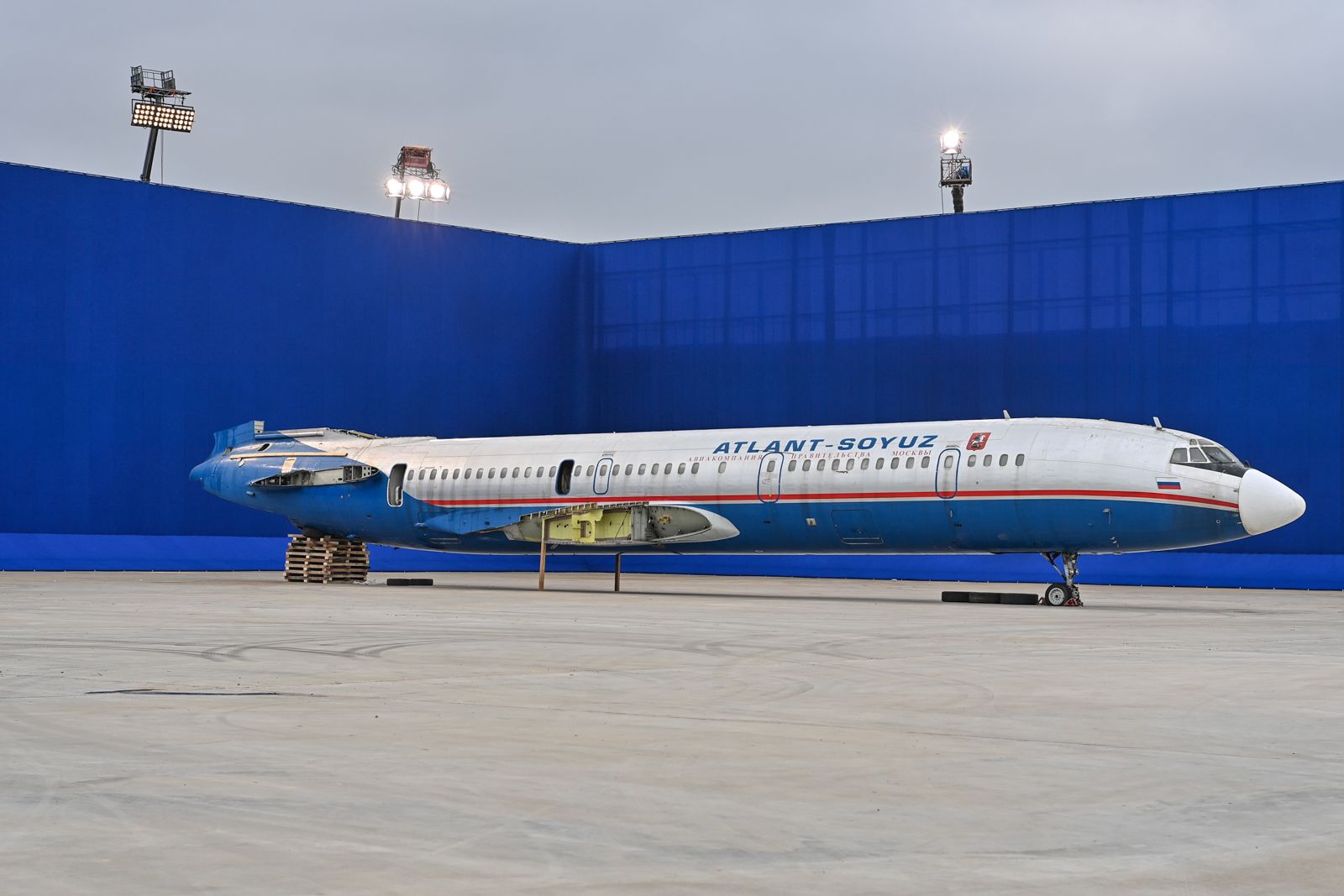
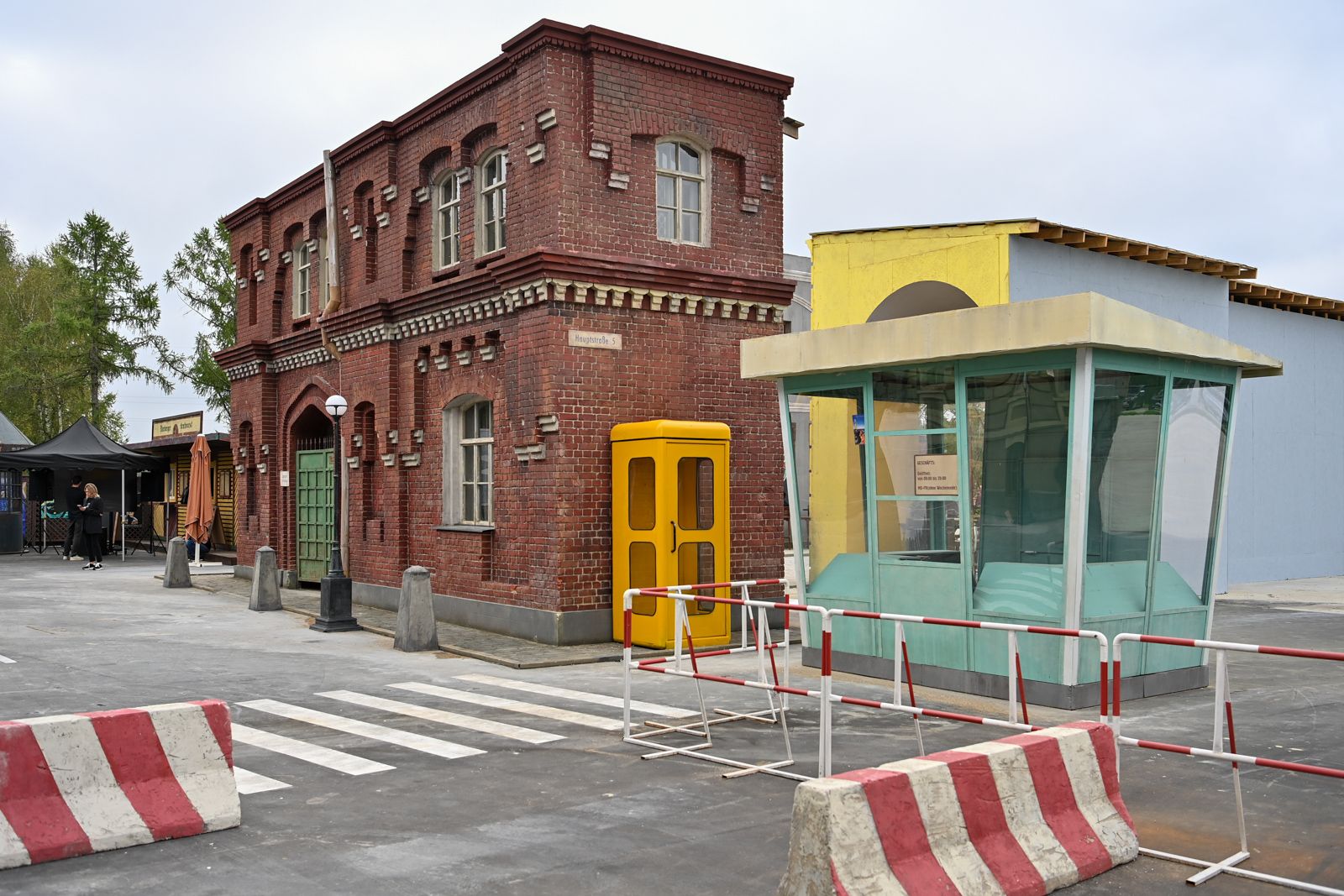
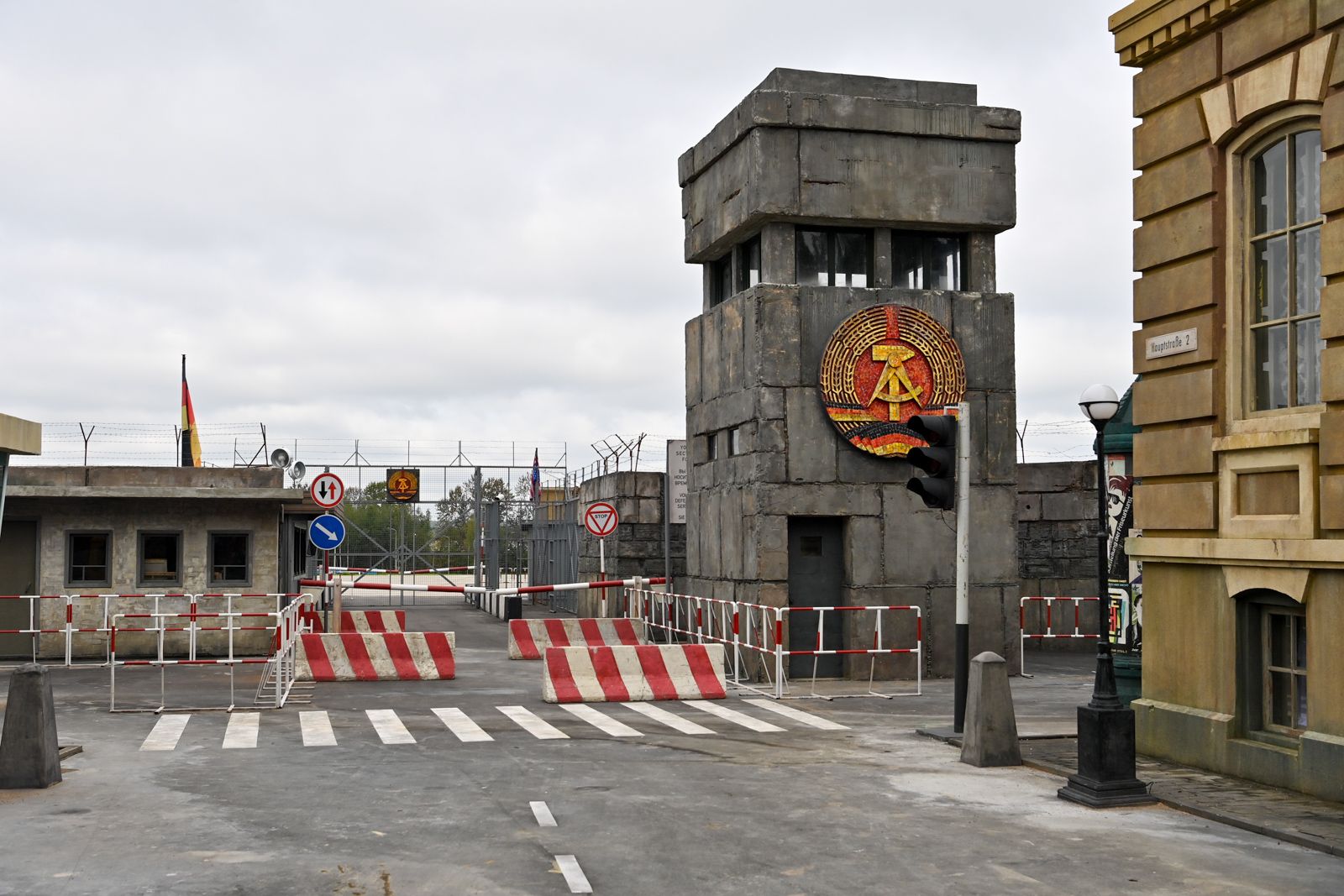
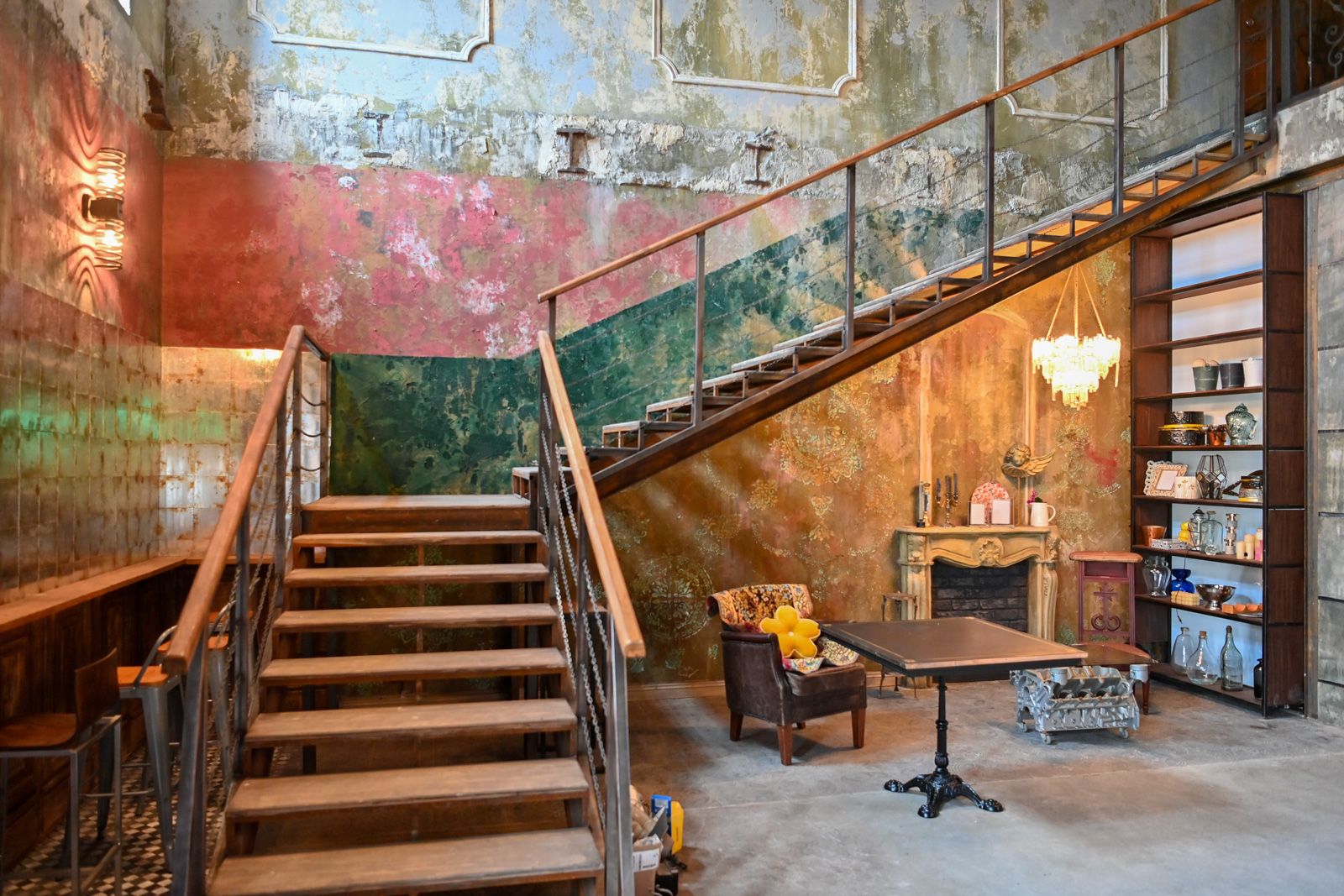
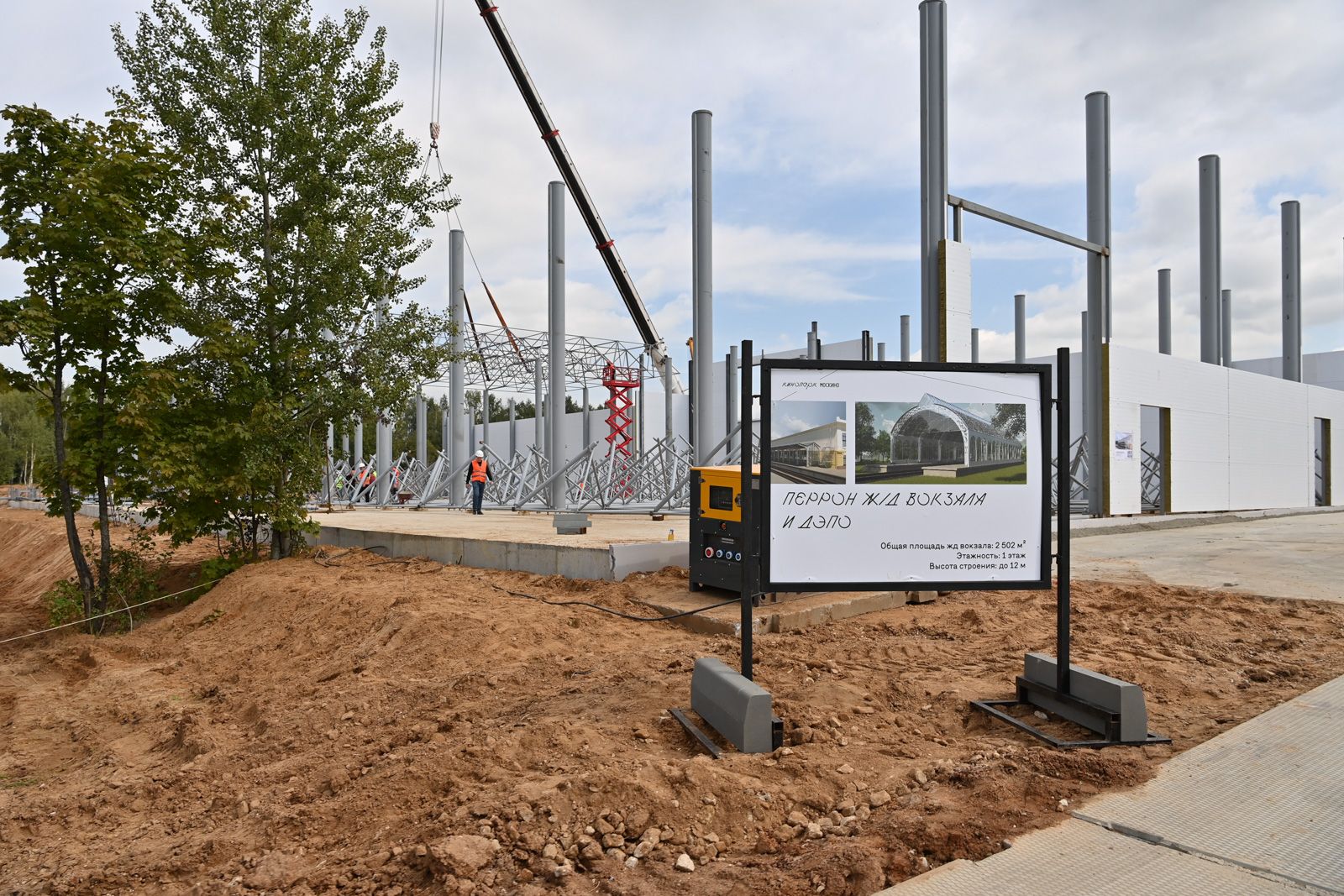
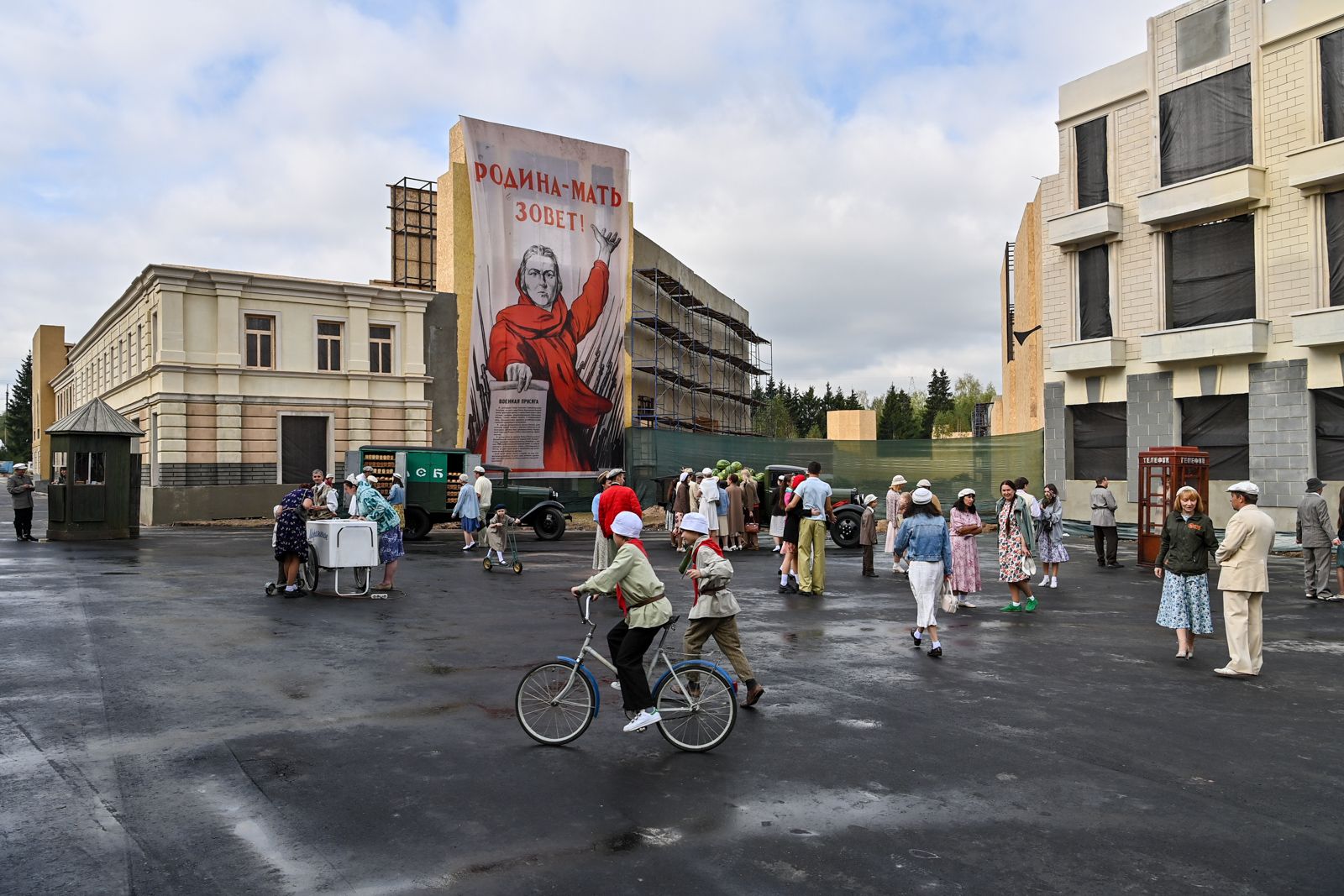
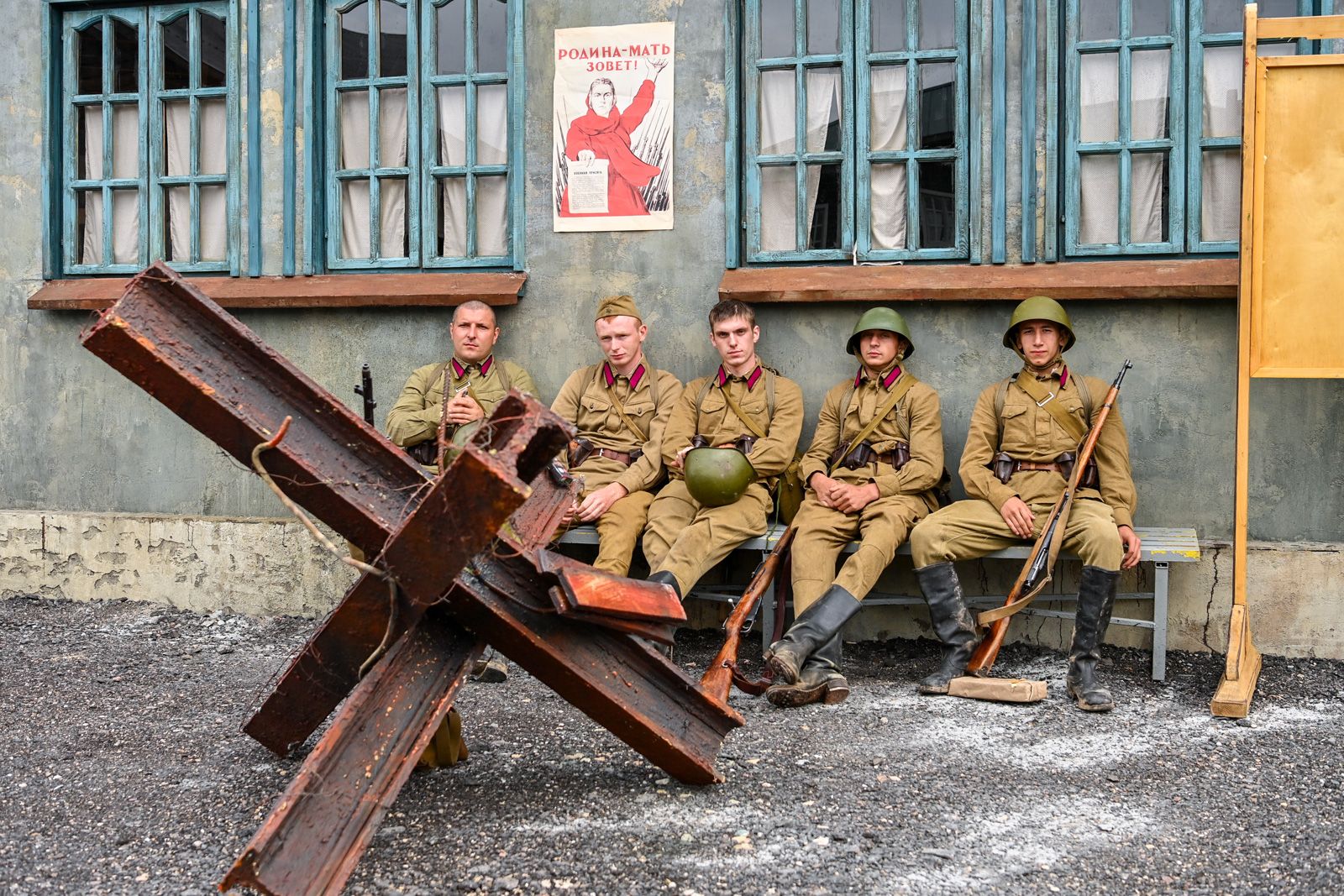
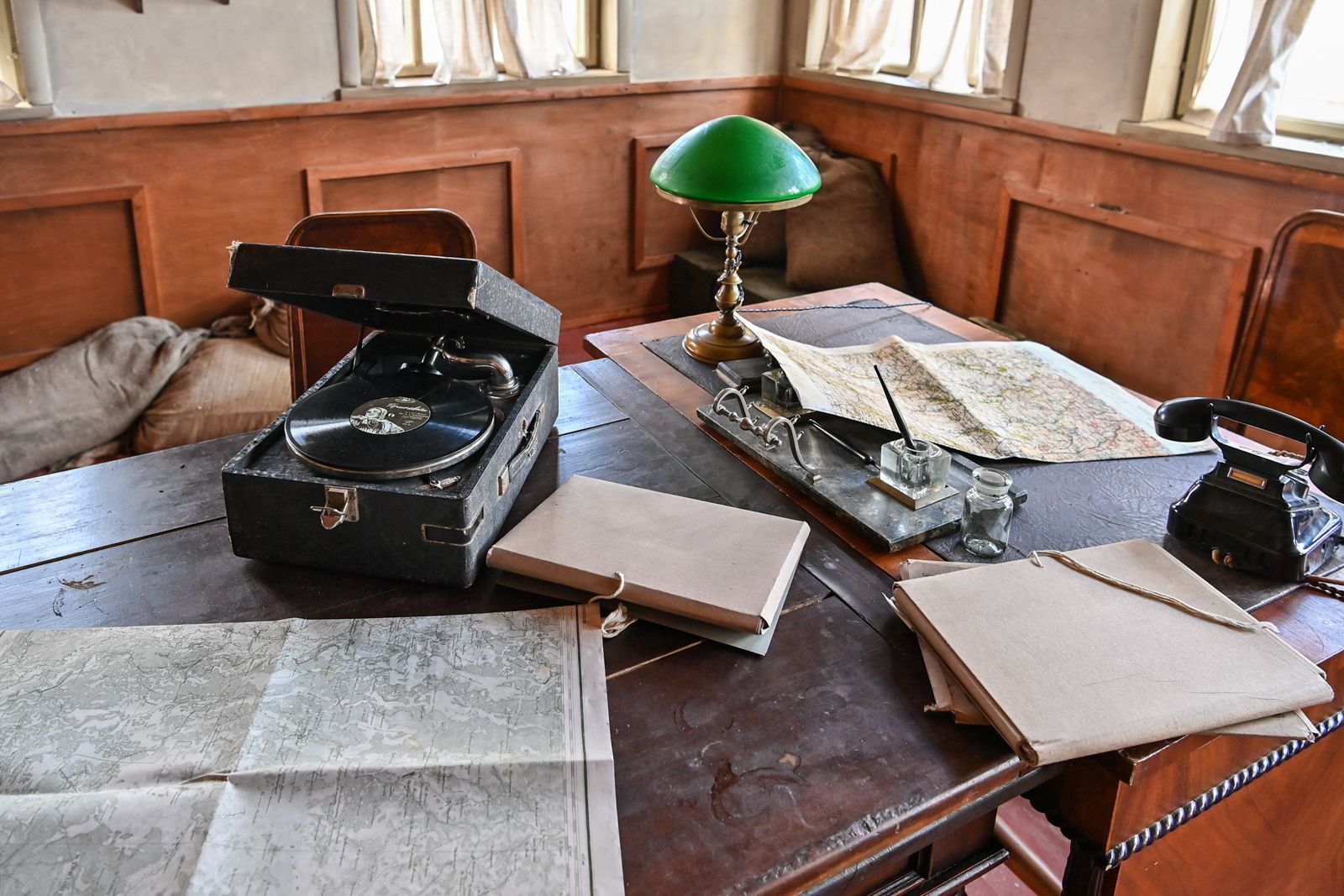
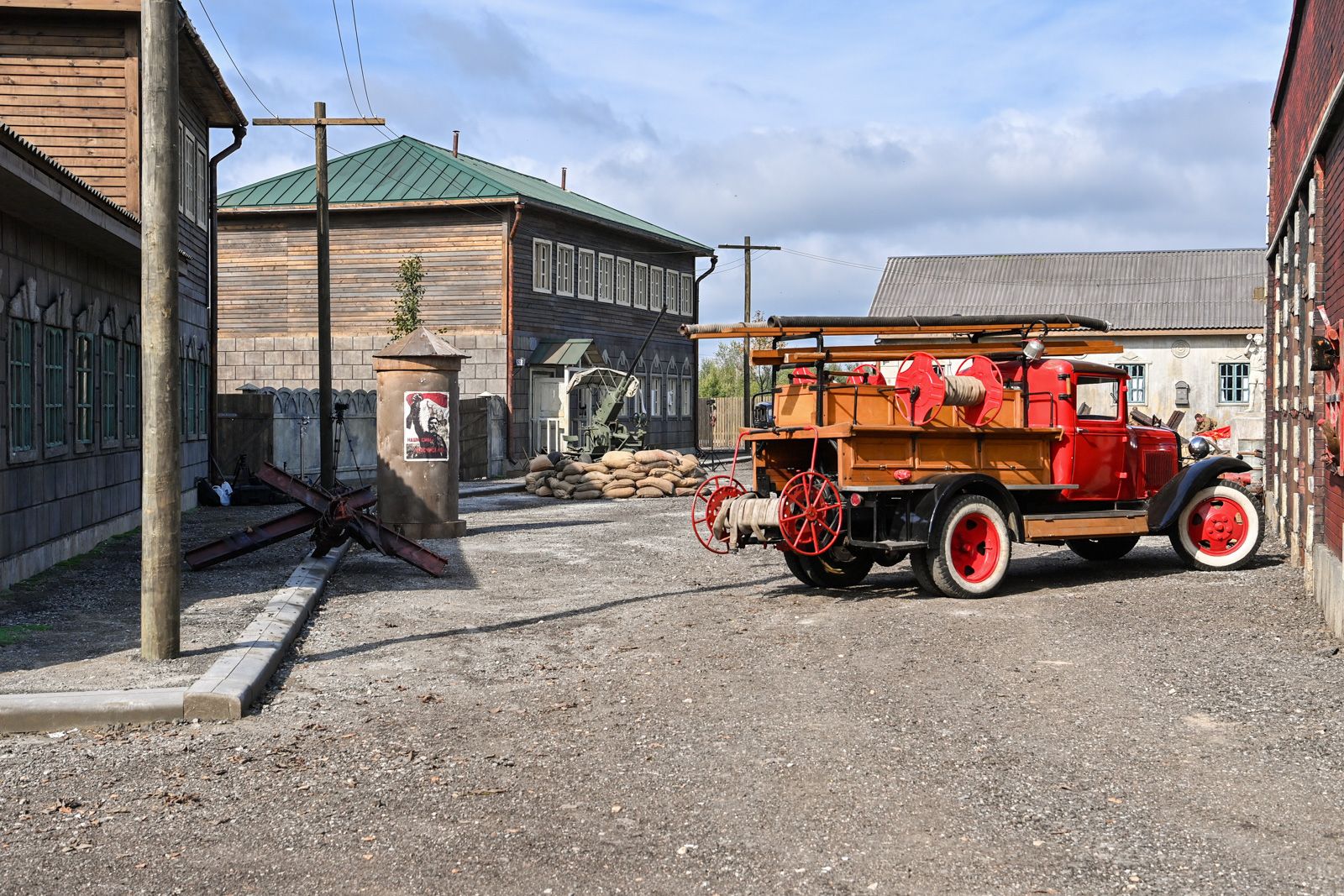
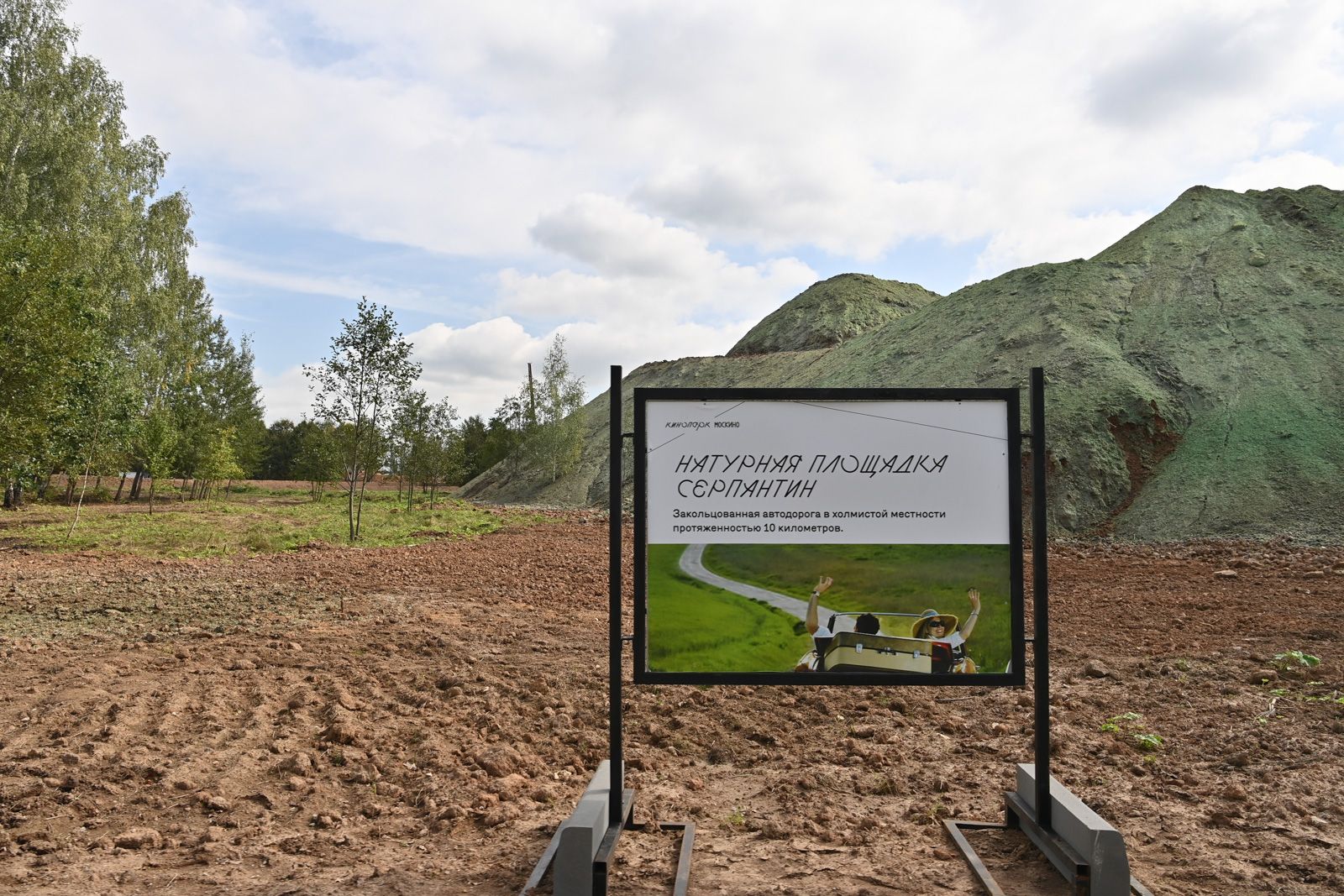
Workers are also building infrastructure facilities, such as a multifunctional filming pavilion, a Railway Station pavilion with a depot, an Airport pavilion, a Cultural Center, two hotels for film crews and visitors, a concert venue, and a management building.
At the same time, some film production companies have started filming the first feature films and TV shows.
By decision of the Moscow Government, the first five filmmakers shooting feature films and TV shows in Moskino Cinema Park are awarded RUB 10 million grants, these covering the following film projects:
— And in Our Yard — 3 TV show (thriller, melodrama, directed by Olga Muzaleva, with a 1,250 m2 set of a traditional Moscow courtyard of the 1920-1930s);
— Admiral Kuznetsov TV show (drama, directed by Sergei Vinogradov, with a 2,500 m2 set of Tallinn streets of the 1940s);
— GDR TV show (spy drama, directed by Sergei Popov, with a 5,000 m2 set of a cowboy town);
— feature film War and Music (military drama, directed by Sarik Andreasyan, with a 1,250 m2 set featuring a fragment of the Reichstag façade);
— feature film The Last (drama, directed by Viktor Ryzhakov, with a set of a small village in central Russia).
Today the cinema park accommodates the following ready-to-use movie scenery:
— a bar and a fragment of a city street for a comedy show produced by the Berg Sound film company (directed by Anario Mamedov);
— recognizable Moscow locations of different times for a romantic comedy movie produced by Gazprom-Media Holding (directed by Vsevolod Aravin);
— 1940s buildings and streets of a city near Moscow for a military drama about the feat of the people’s militia produced by the Voenfilm studio (directed by Igor Ugolnikov).
Builders are also creating the following sets:
— Moscow in the 1940s for a historical TV show about the Great Patriotic War produced by the Third Rome Studio (directed by Nikita Grammatikov);
— Sobornaya (Cathedral) Square of the Moscow Kremlin for a historical drama produced by the Globus Film Company and Channel One (directed by Sergei Ginzburg);
— iconic places in Vladivostok of the late 19th — early 20th century with the Millionka quarter, a fishing port with piers and a specially dug waterway for a military drama produced by the Third Rome Studio (directed by Dmitry Kiselev).
The future area will host a number of film projects, including Channel One’s serial feature films with tentative titles Natalya and Alexander, Pavel. The First and Last, Potemkin, Lilya, 10 Stories, Master of the City, and Sergei Zhigunov’s TV show Donbass.
When the cinema park is not engaged for filming, it will be open to public and will be important in promoting cinema education as it is to act as a film tourism/ecotourism location and a venue for historical reenactment events, landscape or art installations.
The unique Secret City amusement park, inspired by the works of science fiction writer Vadim Panov, will also become a highlight. Workers are going to build more than 25,000 square meters of movie sets.
This project will make Moskino Cinema Park a large-scale cultural, entertainment and educational area and a hot spot for Muscovites and tourists.
Experts project a 20 per cent increase in Moscow film production activities, boosting film industry revenues accordingly. Jobs in the film production and distribution industry are expected to increase by 5 per cent.
VNIIMETMASH Film Cluster
In March 2023, the Moscow Government began redeveloping the former Academician Tselikov All-Russian Design and Research Institute of Metallurgical Machine-Building (VNIIMETMASH) on Ryazansky Prospekt not far from the Stakhanovskaya metro station.
The site will include a 24 hectare creative cluster to accommodate top video and film producers, develop domestic products and integrate advanced world technologies into the film industry.
VNIIMETMASH infrastructure will include cutting-edge film studios, offices, a multimedia center and other facilities providing a full cycle of film and video content production, as it is VNIIMETMASH that will become the core area used to tackle the issue of scarce high-end high-tech film production sites in the capital. Popular scenery and location filming can now be produced at VNIIMETMASH, making theme-related buildings according to film companies’ requests. In addition, this year the municipality will launch a local platform for their convenience, for them to book props, costumes or equipment and lease a VNIIMETMASH site or any filming location available in the city, including privately owned.
The former institute will house the largest costume and props center called Firebird (80 per cent of the industry).
VNIIMETMASH will also become a new point for tackling an urgent problem of an acute shortage of highly skilled personnel, which hinders the full-scale development of the contemporary film industry. It will be used to hone filming skills with existing Moscow-based film schools in the real world. This primarily applies to middle management, such as second unit director, props master, editing director, set designer, lighting man, camera man, and many others.
The lack of start-of-the-art domestic film production technologies is a reality. To tackle the issue, specialists will build an R&D center in the VNIIMETMASH cluster. At the moment, the municipality is negotiating with potential residents — scientific, industrial and IT companies — so that they develop their projects in the cluster.
The VNIIMETMASH cluster infrastructure will be created in three phases.
The first phase will cover reconstruction of 10 buildings to re-open by the fall:
— studios for filming and shooting commercials;
— high-tech XR studios for shooting Virtual Production;
— the Firebird costume and props center — high-tech warehouses;
— a media art center for exhibitions, educational programs and various events, showrooms, studios, co-working spaces, a public area, a media gallery, and a cafe;
— offices of film production companies and co-working spaces;
— material and design center for the fashion industry;
— a cinema museum, a film school, a screening room, and a cafe.
The site is currently a venue for several film projects, including the four-episode feature film Abrek about a wild beast that teaches people to remain human in a world of enmity and hatred, and TV show Poor Oligarch featuring a Russian businessman in London, who falls under sanctions and loses his property.
A year later, by the fall of 2024, workers will run the second phase to reconstruct four buildings to house six large film studios.
The third phase to kick off in 2024–2026 to set:
— six film studios, including unique filming facilities;
— an R&D film industry center for scientific, production and IT companies to drive new technology for the film and media industry;
— a resource (sharing) center for the film industry to embrace a multifunctional studio, a co-working space, a rendering farm, video editing and sound recording studios, a 3D printer, a printing house, lathe, welding, milling and carpentry workshops, a sewing shop, a rehearsal room, and a mirrored class room;
— supporting infrastructure facilities, such as a hotel, a sports center, cafes and restaurants.
In the future, the area of the VNIIMETMASH cluster is expected to total more than 210,000 square meters. It will not however be closed but will become a new hot spot for locals to gain insights on how the Moscow film cluster looks like and how it is developing, to take kid-friendly tours around the cluster or just to have a good time with the whole family. Designers will create related infrastructure (e.g., cafes, shops, a pharmacy, and a sports center) so that Muscovites and tourists enjoy comfortable staying there.
Revival of the Maxim Gorky Film Studio
Established in back 1915, the Maxim Gorky Film Studio is one of the oldest in Russia. The golden collection of the Gorky Film Studio includes hundreds of films that make up the cultural heritage of Russia, and among them:
The Dawns Here Are Quiet, Volunteers, Seventeen Moments of Spring, White Bim the Black Ear, And Quiet Flows the Don, Officers, Carnival, Three Poplars in Plyushchikha, Jack Frost, Could One Imagine?, The Kingdom of Crooked Mirrors, Guest from the Future, etc. Like other state-owned film producers, it saw the 1990s decline. For a long time, it produced almost nothing and its main building and the studio complex were in a poor condition or in disrepair.
In recent years, with the support of the Russian Government and the Ministry of Culture, and thanks to efforts of the new management team, the municipality has started modernization of the production complex to ultimately revive the film studio.
It is producing 12 feature films and 16 documentary films today. Young cinema fans, film students and professionals are welcome at the Gorky Film Campus that offers educational projects and film expeditions to cities in Russia and abroad.
In 2023, the Gorky Film Studio was transferred to the municipal ownership, which enabled its further revival. As a result, the city will launch another creative space with everything necessary included to provide a full cycle of film production.
Sergei Sobyanin: Moscow to reopen the famous Gorky Film Studio
The workspaces will reach 100,000 square meters.
The renovated Gorky Film Studio embraces modern TV content, digital technology and digital content pavilions, studios and related infrastructure, a children’s and youth creative cluster, in addition to Sci-Fi/youth movies and cartoons production facilities.